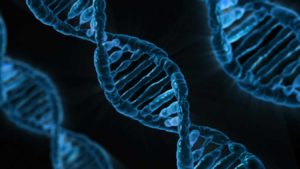 If you struggle with depression, you are not alone. Over 300 million people around the world are affected by depression, according to WHO. San Diego Christian Counseling can help those dealing with depression. Depression is more than just feeling a little “down” about life. It’s a common and serious medical illness that often remains untreated.
If you struggle with depression, you are not alone. Over 300 million people around the world are affected by depression, according to WHO. San Diego Christian Counseling can help those dealing with depression. Depression is more than just feeling a little “down” about life. It’s a common and serious medical illness that often remains untreated.
According to the American Psychiatric Association depression “negatively affects how you feel, the way you think and how you act.
Depression causes feelings of sadness and/or a loss of interest in activities once enjoyed.” It can erode a person’s ability to function at work and accomplish day-to-day activities.
What are the Causes of Depression?
Since depression impacts millions of people worldwide, the natural question most ask is, “What are the causes of depression?” While there are some ideas of the origin of depression, it is difficult to pinpoint, since depression can look radically different from person to person.
Different Types of Depression
Let’s define the terms before digging into possible causes of depression. Major Depressive Disorder consists of 14 different codes that mental health professions can use to look at different aspects of depression.
Dysthymia is usually less severe than Major Depressive Disorder but occurs over a longer period of time. The chronic nature of dysthymia can become exhausting over time.
 Bipolar Depression fluctuates between a depressed low and a feel-good high. If someone is suffering from an adjustment disorder with depression, the environment is most likely the culprit for the depression and can be remedied through therapy.
Bipolar Depression fluctuates between a depressed low and a feel-good high. If someone is suffering from an adjustment disorder with depression, the environment is most likely the culprit for the depression and can be remedied through therapy.
If someone has a major depressive episode it can come on strong without an event to point to leaving most to suspect brain chemistry is causing the episode. If symptoms last longer than two weeks, it can be diagnosed as depression.
Possible Causes of Depression
Depression may develop from a complex interaction of social, psychological and biological factors.
1. Neurotransmitters
An imbalance of chemicals can affect our moods. Neurons are the cells in the body and brain that communication information. Neurons firing cause people to experience thoughts, emotions, memories, and to control certain parts of the body. The neurotransmitter serotonin, causes moods to increase when present in abundance.
When an antidepressant is administered, it works to create a new balance in the brain. Although it can take time to find an antidepressant that is the best fit, changing diet and increasing physical activity in the interim can alleviate some of the depressive moods.
2. Genes
 Sometimes you don’t have to look farther than your family to see where depression originates. Genetics can make one vulnerable to depression. If your mother suffers from depression, you are more predisposed to have depression too.
Sometimes you don’t have to look farther than your family to see where depression originates. Genetics can make one vulnerable to depression. If your mother suffers from depression, you are more predisposed to have depression too.
Of course, genes are not a perfect predictor of depression. While they can increase someone’s probability, a person can exhibit signs of depression without any family history at all.
3. Environmental Stress
Depression normally manifests itself based on environmental causes. Genes can set the stage, but it’s the environment that puts everything into motion. This could be stress from unemployment, the death of a loved one, the climate where you live, or severe trauma.
If someone experiences habitual unemployment or constant loss in their life, a level of depression is to be expected.
Because stress causes chemical reactions in the body. Stress has its own physiological consequences. It triggers a chain of chemical reactions and responses in the body. If the stress is short-lived, the body usually returns to normal. But when stress is chronic or the system gets stuck in overdrive, changes in the body and brain can be long-lasting.
4. Medical condition
Lupus, Alzheimer’s disease, anemia and other medical conditions can cause depression. Anemia is one that often slips under the radar. Anemia leads to low energy levels, which can evolve into a lack of motivation to do things. The psychological interpretation of the physical symptoms often causes people to become despondent and any motivation is diminished.
 Because the issue doesn’t revolve around neurotransmitter activity in the brain, antidepressants won’t make a difference. If you’ve been trying to find the right medication, but are still showing symptoms of depression, it’s wise to check with a doctor about anemia as a possible cause.
Because the issue doesn’t revolve around neurotransmitter activity in the brain, antidepressants won’t make a difference. If you’ve been trying to find the right medication, but are still showing symptoms of depression, it’s wise to check with a doctor about anemia as a possible cause.
5. Medications
Sometimes certain side effects of drugs can cause a state of depression. A medical professional can sort out whether a new medication, or recent change in the dosage or mixing with other drugs is affecting your mood. Be sure to alert your therapist about what drugs you take and any symptoms you are experiencing.
Treatment for Depression
The causes of depression are varied and one form of treatment does not fit all. Depression often isolates people and pushes them away from once enjoyable activities. If serving at church or spending time with friends in the community was once fulfilling, it’s important to try to continue doing those activities. The best route to take is a mixture of therapy, medication and personal life change to curb depression.
Depression is completely treatable, but hard to navigate without accountability and therapy. A christian depression therapist at San Diego Christian Counseling can help you identify the places in your life to work on, show you how to uncover your inner thoughts, and create an action plan for defeating depression. Depression does not have to dominate your life.
“Depression”, Courtesy of Toa Heftiba, Unsplash.com, CC0 License; “Depressed”, Courtesy of Ian Espinosa, Unsplash.com, CC0 License; “DNA”, Courtesy of PublicDomainPictures, Pixabay.com, CC0 License; “Depressed,” courtesy of HolgersFotographie, pixabay.com, CC0 License


